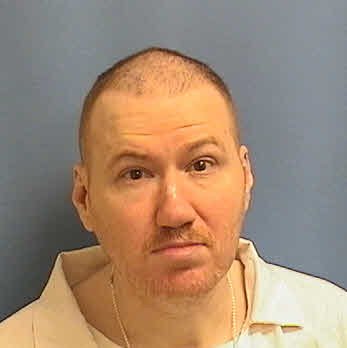FAYETTEVILLE -- A man serving a life sentence for brutally murdering a 4-year-old girl more than 30 years ago is now eligible for parole.
Christopher S. Segerstrom was 15 on July 26, 1986, when he took Barbara Thompson into a wooded area behind the Lewis Plaza Apartments several blocks west of the University of Arkansas. He sexually assaulted her before bashing her head with a rock and suffocating her. He had promised to help the child catch butterflies.
Ruling prompted sentencing changes
A divided U.S. Supreme Court said in January an earlier ruling striking down automatic life terms with no chance of parole for teen murderers should be applied retroactively. The ruling means inmates convicted years ago must be considered for parole or given a new sentence. The court’s ruling came in the case of Henry Montgomery, who has been in prison since 1963 for killing a sheriff’s deputy in Baton Rouge, La. Montgomery was 17 at the time. The decision doesn’t bar judges from sentencing teen killers to life in prison, but the court has said life sentences for teens should be rare, and only used in the worst cases. Some of those inmates have been behind bars more than 50 years. The sentences of 56 inmates in Arkansas who were minors when they were sentenced to life without parole were vacated and resentencings ordered.
Source: Staff report
Segerstrom, 45, was convicted of capital murder and sentenced to life without the possibility of parole.
The U.S. and Arkansas Supreme courts have since ruled juveniles cannot be sentenced to life without parole, and Arkansas changed its law to allow life with the possibility of parole after 30 years in order to comply with the rulings.
Circuit Judge Mark Lindsay resentenced Segerstrom on Wednesday. Because Segerstrom was given credit at his original sentencing for 11 months jail time served, he's now eligible to seek parole.
Prosecutor Matt Durrett met with Barbara Thompson's family for about 15 minutes after the hearing to discuss the parole process.
"It's still confusing because this is a family that was told 30 years ago that this guy was never, ever going to get out again," Durrett said. "There's a lot of confusion, a lot of emotions."
One family member leaving the courtroom after the hearing told Segerstrom to "rot in hell."
Durrett said he will oppose parole for Segerstrom.
"As long as I am here and upright, I'm going to do everything I can to keep him from ever breathing free air again," Durrett said. "What he did to Barbara Thompson is just indicative of someone who needs to be locked up forever."
Segerstrom was the last of three men sentenced to life without parole for murders they committed as teenagers in Washington County.
James Dean Vancleave was resentenced last month. Vancleave, 55, of Springdale was convicted of capital murder for killing 23-year-old Debra King.
Vancleave was 16 when he killed King on Jan. 29, 1978, at a convenience store on Elm Springs Road.
Vancleave stabbed King 16 times, slashed her hand 11 times and tried to slash her throat with a small hunting knife to get $30 from her purse. The cash register wasn't touched.
Lindsay resentenced Vancleave to the maximum of life with the possibility of parole after serving 30 years.
Dennis Wayne Lewis was ordered released last fall, because in his case, no valid sentencing options were available.
Lewis, 59, of Wichita, Kan., was convicted of capital murder and assault with intent to rob.
Lewis was 17 years and 5 months old when he killed Jared Jerome Cobb at Cobb's Western Store and Pawn Shop during an armed robbery April 8, 1974. Lewis' case was one of the oldest in the state, coming before sentencing laws were changed in 1976.
Lindsay signed an order in October that Lewis' sentence remain vacated, and he was immediately discharged from the Arkansas Department of Correction.
Lewis' case was unusual among the 56 Arkansas cases in which juvenile life sentences have been vacated, according to his attorneys, L. Gray Dellinger and Larry Kissee. They maintained because state statutes were overturned as unconstitutional, no sentencing options were available to the court based on state law in effect at the time Lewis committed his crime.
Durrett said he and others, including the state Attorney General's Office, studied the issue and, reluctantly, came to the conclusion Lewis' lawyers were correct.
Vancleave and Segerstrom were sentenced under a different law in effect at the time.
NW News on 05/04/2017
